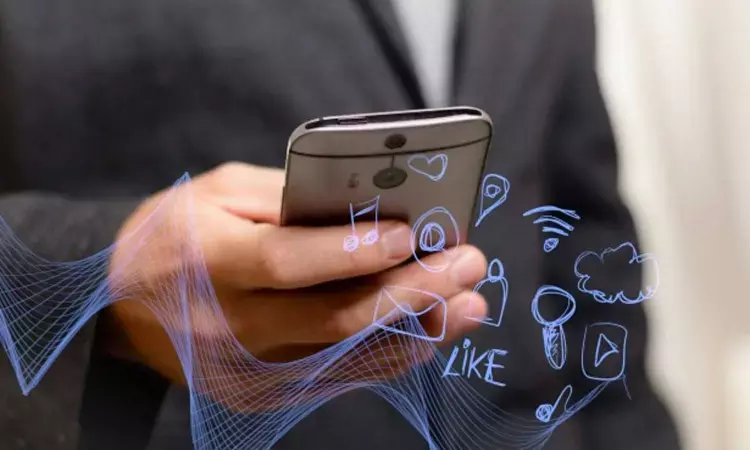- Home
- Medical news & Guidelines
- Anesthesiology
- Cardiology and CTVS
- Critical Care
- Dentistry
- Dermatology
- Diabetes and Endocrinology
- ENT
- Gastroenterology
- Medicine
- Nephrology
- Neurology
- Obstretics-Gynaecology
- Oncology
- Ophthalmology
- Orthopaedics
- Pediatrics-Neonatology
- Psychiatry
- Pulmonology
- Radiology
- Surgery
- Urology
- Laboratory Medicine
- Diet
- Nursing
- Paramedical
- Physiotherapy
- Health news
- Fact Check
- Bone Health Fact Check
- Brain Health Fact Check
- Cancer Related Fact Check
- Child Care Fact Check
- Dental and oral health fact check
- Diabetes and metabolic health fact check
- Diet and Nutrition Fact Check
- Eye and ENT Care Fact Check
- Fitness fact check
- Gut health fact check
- Heart health fact check
- Kidney health fact check
- Medical education fact check
- Men's health fact check
- Respiratory fact check
- Skin and hair care fact check
- Vaccine and Immunization fact check
- Women's health fact check
- AYUSH
- State News
- Andaman and Nicobar Islands
- Andhra Pradesh
- Arunachal Pradesh
- Assam
- Bihar
- Chandigarh
- Chattisgarh
- Dadra and Nagar Haveli
- Daman and Diu
- Delhi
- Goa
- Gujarat
- Haryana
- Himachal Pradesh
- Jammu & Kashmir
- Jharkhand
- Karnataka
- Kerala
- Ladakh
- Lakshadweep
- Madhya Pradesh
- Maharashtra
- Manipur
- Meghalaya
- Mizoram
- Nagaland
- Odisha
- Puducherry
- Punjab
- Rajasthan
- Sikkim
- Tamil Nadu
- Telangana
- Tripura
- Uttar Pradesh
- Uttrakhand
- West Bengal
- Medical Education
- Industry
Mobile apps effective tools to control blood sugar and high BP: Study

Researchers have found in a new meta-analysis that Health apps are effective self-care tools for improving and managing blood sugar and high blood pressure. The new research will be published in the journal of Medical Internet Research JMIR mHealth and uHealth.
Mobile app-assisted self-care interventions are emerging promising tools to support self-care of patients with chronic diseases such as type 2 diabetes and hypertension. However the effectiveness of such interventions requires further exploration for more supporting evidence.
The researchers conducted a systematic review and meta-analysis of randomized controlled trials (RCTs) to examine the effectiveness of mobile app-assisted self-care interventions developed for type 2 diabetes and/or high blood pressure or high BP in improving patient outcomes.
They followed the Cochrane Collaboration guidelines and searched Medline, Cochrane Library, Embase, and CINAHL Plus for relevant studies published between January 2007 and January 2019. Primary outcomes included changes in hemoglobin A1c (HbA1c) levels, blood sugar levels,systolic blood pressure (SBP), and diastolic blood pressure (DBP). Changes in other clinical-, behavioral-, knowledge-, and psychosocial-related outcomes were included as secondary outcomes. Primary outcomes and objective secondary outcomes that were reported in at least two trials were meta-analyzed; otherwise, a narrative synthesis was used for data analysis.
The investigators identified and analyzedTwenty-seven trials . For primary outcomes, the use of mobile app-assisted self-care interventions was associated with significant reductions in blood sugar levels,HbA1c levels [standardized mean difference (SMD) = -0.44, 95% confidence interval (CI) = -0.59 to -0.29; P < .001], SBP (SMD = -0.17, 95% CI = -0.31 to -0.03, P = .02), and DBP (SMD = -0.17, 95% CI = -0.30 to -0.03, P = .02). Subgroup analyses for primary outcomes showed that several intervention features were supportive of self-management, including blood sugar, blood pressure-, and medication-monitoring, communication with health care providers, automated feedback, personalized goal setting, reminders, education materials, and data visualization. Eight objective secondary outcomes were meta-analyzed, which showed that the interventions had significant lowering effects on fasting blood glucose levels and waist circumference. Forty-two secondary outcomes were narratively synthesized, and mixed results were found.
The authors concluded that Mobile app-assisted self-care interventions can be effective tools for managing blood sugar and blood pressure, likely because their use facilitates remote management of health issues and data, provision of personalized self-care recommendations, patient-care provider communication, and decision making. More studies are required to further determine which combinations of intervention features are most effective in improving the control of the diseases. Moreover, evidence regarding the effects of these interventions on the behavioral, knowledge, and psychosocial outcomes of patients is still scarce, which warrants further examination.
For further reference log on to:
Effectiveness of mobile app-assisted self-care interventions in improving patient outcomes in type 2 diabetes and/or hypertension: A systematic review and meta-analysis of randomized controlled trials
JMIR mHealth and uHealth. 04/05/2020:15779 (forthcoming/in press)
Dr Kamal Kant Kohli-MBBS, DTCD- a chest specialist with more than 30 years of practice and a flair for writing clinical articles, Dr Kamal Kant Kohli joined Medical Dialogues as a Chief Editor of Medical News. Besides writing articles, as an editor, he proofreads and verifies all the medical content published on Medical Dialogues including those coming from journals, studies,medical conferences,guidelines etc. Email: drkohli@medicaldialogues.in. Contact no. 011-43720751


